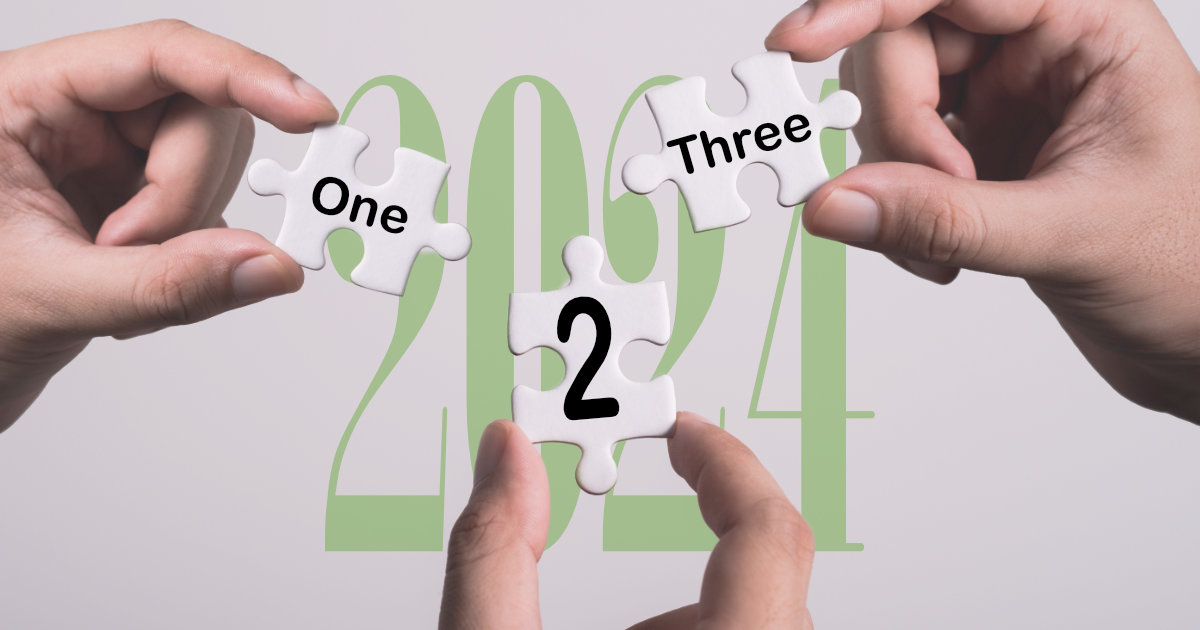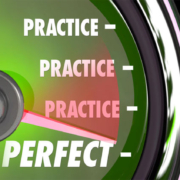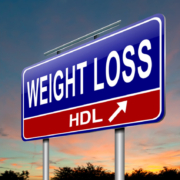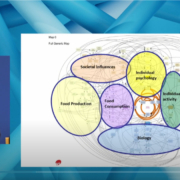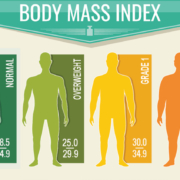Three Tips for a Healthier Year
Most people look at the New Year as a time to make some changes to eating and exercise habits to accomplish health goals. For many, it’s reducing their body weight; for others, it’s getting fitter. But health is more than body weight and fitness. Many of us want to improve our diets, lower our blood pressure or cholesterol, become more flexible, or
take better care of our teeth, and for some, managing pain and other health conditions is a goal. Here are three tips to help you become healthier by the end of the year.
Tip 1: Use Available Technology
In a blog from the business builder Seth Godin about using technology, the final line was, “Working harder is rarely a better plan than finding better tools.” The quote was related to business, but it applies to health as well. Sometimes the tool is information; I hope that’s one of the reasons you read the Memo. I’ll have a lot more info coming to help you get healthy in 2024 from webinars, courses, and maybe some live events.
Sometimes, the tool is a device like a smart watch or a specific type of monitoring technology. I recently got a Kardia ECG monitor to collect data on my ECG. With other tools, you can monitor your blood pressure, oxygen level, and blood sugar to determine your patterns. But you must master the use of that technology for it to be helpful. The same is true for any exercise equipment you choose to use. That leads to the second tip.
Tip 2: Know Why You’re Doing What You’re Doing
If you’ve ever heard me speak in a seminar, I always tell people when it comes to taking a dietary supplement, you should know exactly why you’re taking it. Some are non-specific for overall health like a multivitamin-multimineral, but you may be taking a supplement for a specific reason, such as taking ginkgo biloba for increasing blood flow or coenzyme Q10 for more energy. You should know the reason for anything you’re taking.
This is my addition for 2024: you should also know why you’re taking every medication you’re taking. Have a thorough discussion with your physician or your specialist to determine why you’re taking each medication, what its purpose is, and whether you’re taking the lowest dose to get a positive effect. And then you must be able to test that impact somehow. Either you’ll have less pain, more flexibility, lower cholesterol or blood pressure, or some measurable benefit, or it’s time to change things.
You could apply that to foods and exercise as well, but supplements and medications are usually more purposeful.
Tip 3: Be Consistent
It seems I’ve talked about this forever, but you must try a change in lifestyle for at least 90 days to know if it works. You have to be consistent and track the health benefit somehow. Weight and blood pressure are easy; I still use a small notebook to track calories as I work to get to a normal body weight. For pain and digestive symptoms, you can find pain and symptom scales; this pain scale is on drchet.com. Then find a way to record the results every day—electronically on your computer or smart phone, or pencil and paper. I track workouts and total calories on an Excel spreadsheet; Paula has recorded her weight in a paper calendar most of her life.
You have to be able to go back and see any changes or patterns. How will you know you get fewer migraines if you aren’t tracking each one you get? That applies to every change you’re making.
If you can use these three tips, your 2024 will be less frustrating. Not everything works for everybody, but there’s always another approach. If one doesn’t work, go to the next. As long as you pay attention, you’ll finish the year healthier than when you began.
What are you prepared to do today?

